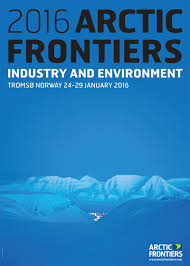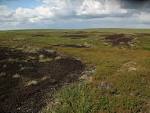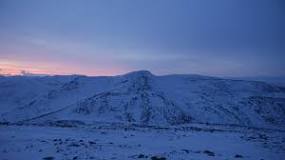|
|
|
|
|
|
|
|
 2016 Arctic Frontiers, January 24-29, 2015 (Tromso, Norway). 2016 Arctic Frontiers, January 24-29, 2015 (Tromso, Norway).The Arctic is a global crossroad between commercial and environmental interests. The region holds substantial natural resources and many actors are investigating ways to utilise these for economic gain. Others view the Arctic as a particularly pristine and vulnerable environment and highlight the need to limit industrial development. Arctic Frontiers 2016 will discuss the balance between resource utilisation and preservation, and between industrial and environmental interests in the Arctic. Envisioning a well-planned, well-governed, and sustainable development in the Arctic, how can improved Arctic stewardship help balance environmental concerns with industrial expansion? How can the industrial footprints from future business activities be minimised? And last, but not least, what role will existing and emerging technologies play in making industrial development profitable and environmentally friendly, securing a sustainable growth scenario for Arctic communities?
Today's Congressional Action:
The House is in session. The Senate is expected to consider S. 2012, the Energy Policy Modernization Act.
|
 Stop Romanticizing Arctic Development, Say Indigenous Leaders. Stop Romanticizing Arctic Development, Say Indigenous Leaders. Indigenous communities around the North are struggling economically and want development more than ever, as long as it's done on their terms and with their full partnership. That was the message sent by a host of Arctic indigenous leaders from the worlds of politics and business when they addressed the opening policy session of the Arctic Frontiers conference in Tromso, Norway on Monday. Alaska Dispatch News
[Canada] Coast Guard: New $1.3 Billion Arctic Icebreaker to be Ready by 2022. The Liberal government expects engineering work on a new heavy duty icebreaker will start in 2017, with delivery of the $1.3 billion polar class icebreaker by 2022, a Coast Guard spokesperson said Jan. 26. The CCGS John G. Diefenbaker, named after the Progressive Conservative prime minister who served from 1957 to 1963, will be built by Seaspan Marine Corp. of British Columbia and will replace the Louis St. Laurent, which Canada launched in 1968. Nunatsiaq Online  Seasonal Sadness in Changing Arctic. Seasonal Sadness in Changing Arctic. The drive north from my home in Whitehorse to Inuvik is a long one: You have to go up the North Klondike Highway for 330 miles to Dawson City, and then north again up the Dempster Highway-the only Canadian road that crosses the Arctic Circle-for another 480 miles before finally landing in Inuvik, the main settlement in the Northwest Territories' MacKenzie River delta. Because of the town's position north of the Arctic Circle, the sun doesn't rise at all in Inuvik for a few weeks each year, from roughly early December to early January. I had come to town to experience this famous (or infamous) 24-hour darkness. I wanted to know what it felt like to go through days lit only by the electric glow of headlights and the flicker of a television screen through an undressed window. Pacific Standard Setting Economic Standards for the Arctic. Climate change is not always seen as a negative, at least if you listen to some increasingly animated venture capitalists weighing in over the melting of the Northern sea ice. In February 2015, the maximum annual Arctic sea ice extent measured just 5.61 million square miles during its winter peak, the lowest level ever captured by a NASA satellite according to the National Snow and Ice Data Center at the University of Colorado, Boulder, which began keeping records in 1979. This is roughly 425,000 square miles lower than the 1979 to 2000 average of 6.12 million square miles. The satellite reading not only confirms the rapid thawing that has climate experts so up in arms, but it also represents the shift in global attention to the planet's last oceanic frontier. World Policy Blog
|
Legislative Action
No Arctic legislation was formally considered yesterday.
|
|
Future Events
Alaska Forum on the Environment, February 8-12, 2016 (Anchorage, Alaska, USA). The Alaska Forum on the Environment (AFE) is Alaska's largest statewide gathering of environmental professionals from government agencies, non-profit and for-profit businesses, community leaders, Alaskan youth, conservationists, biologists and community elders. The diversity of attendees and comprehensive agenda sets this conference apart from any other. Each year there are over 80 technical breakout sessions and sensational Keynote Events. There will be a full week of sessions on climate change, energy, environmental regulations, cleanup and remediation, fish & wildlife, solid waste, and more.
** New this week** ARCUS DC Arctic Research Seminar Series, February 18, 2016 (Washington, DC). Does it seem as though the weather gods have gone crazy lately? It is not your imagination. The question on everyone's minds is why? And is it related to climate change? In this presentation, I will explain new research that links increasing extreme weather events with the rapidly warming and melting Arctic during recent decades. Evidence suggests that Arctic warming is causing weather patterns to become more persistent, which can lead to extremes such as droughts, cold spells, heat waves, and some flooding events.
5th Annual Fletcher Opening Arctic Conference, March 12, 2016. The Opening Arctic Conference builds on the Fletcher School's Warming Arctic International Inquiry series, to bring together high-level thought leaders from across disciplines, Fletcher's hallmark. Staged annually, Fletcher's event continues to address the foreign policy, economic, environmental and security implications of the opening Arctic, while dispelling myths.
Alaska Rural Energy Conference, April 26-28, 2016 (Fairbanks, Alaska, USA). The Alaska Rural Energy Conference is a three day event offering a large variety of technical sessions covering new and ongoing energy projects in Alaska, as well as new technologies and needs for Alaska's remote communities. Building on the growing success, the Alaska Energy Authority and the Alaska Center for Energy and Power have joined forces again to organize and sponsor the 10th annual Alaska Rural Energy Conference.
14th IATS Seminar, June 19-25, 2016 (Bergen, Norway). The University of Bergen (UiB) is honored to host the 14th IATS Seminar in Bergen, Norway, from Sunday 19 to Saturday 25 June 2016 in co-operation with the Network for University Co-operation Tibet-Norway, an academic network with the universities of Oslo, Bergen and Tromsų as partners. The convenor is Professor Hanna Havnevik, Department of Culture Studies and Oriental Languages, University of Oslo, and Chair of the Network.
Inuit traditions are a repository of Inuit culture and a primary expression of Inuit identity. The theme for the 2016 Inuit Studies Conference invites Elders, knowledge-bearers, researchers, artists, policy-makers, students and others to engage in conversations about the many ways in which traditions shape understanding, while registering social and cultural change. The institutional hosts of "Inuit Traditions," Memorial University of Newfoundland and the Nunatsiavut Government, invite you to contribute to an exchange of knowledge to be held in St. John's, Newfoundland and Labrador, October 7-10, 2016. Presentations on all aspects of Inuit studies will be welcome.
|
|

  
4350 N. Fairfax Drive, Suite 510
Arlington, VA 22203, USA
External links in this publication, and on the USARC's World Wide Web site ( www.arctic.gov) do not constitute endorsement by the US Arctic Research Commission of external Web sites or the information, products or services contained therein. For other than authorized activities, the USARC does not exercise any editorial control over the information you may find at these locations. These links are provided consistent with the stated purpose of this newsletter and the USARC Web site.
|
|
|
|
|
|
|
|
|